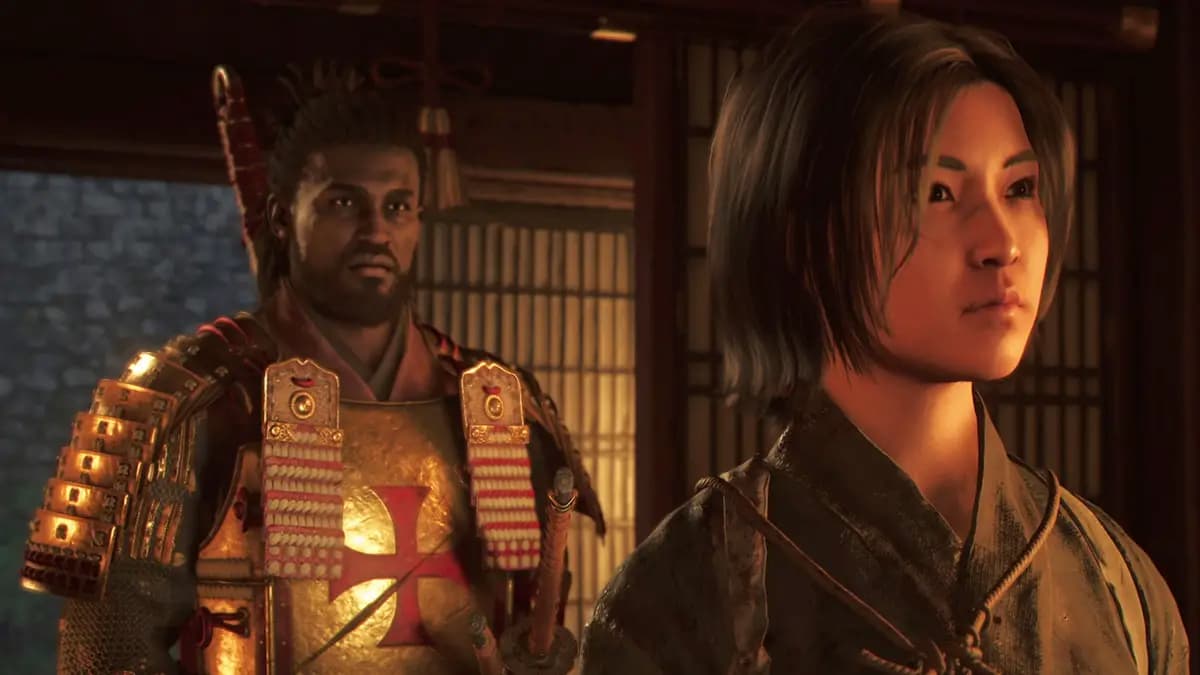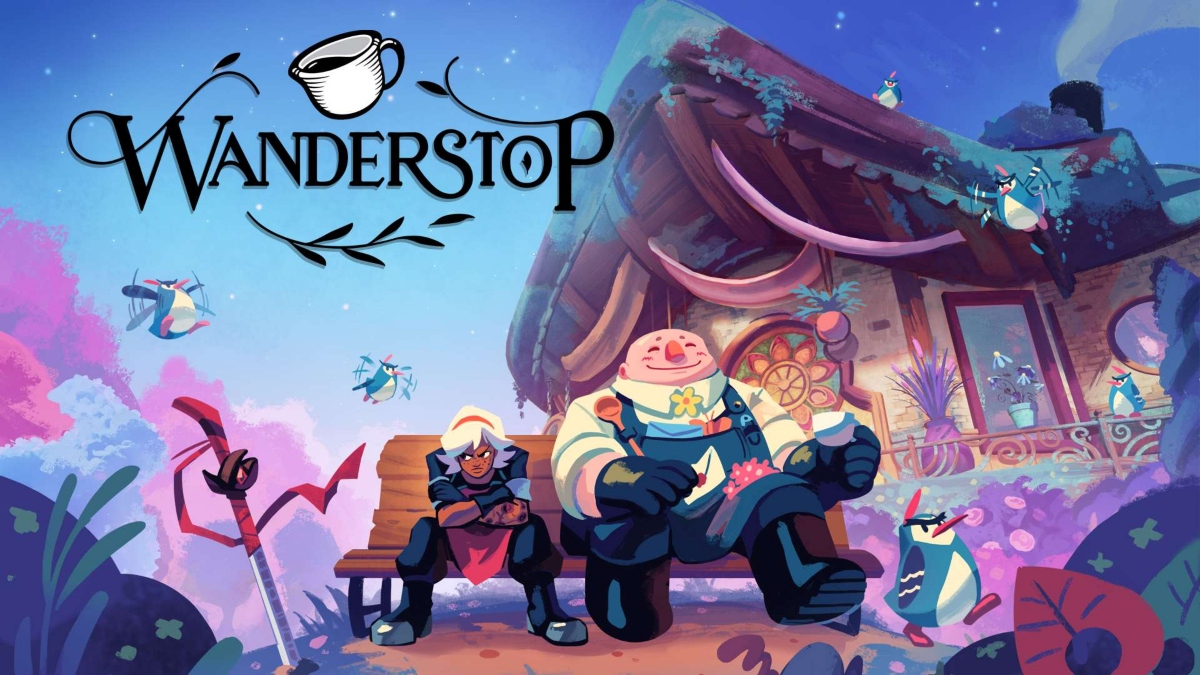Developed and published by Midboss. Available on PC (reviewed), Linux, and Mac.
Evolution. It’s the process by which living things develop and diversify, adapting to our environment, and transitioning from simple to more complex and refined forms. While Natural Selection guided our evolution for millions of years, modern day human evolution is guided by our own knowledge. Advances in medicine and genetics allow us to tinker with the very building blocks that make us human, and research in cybernetics, robotics, and artificial A.I. may one day allow our existences to become wholly digital. These are more than just cool ideas, they are issues that, in the next couple decades, may have a very real impact on our lives. Read Only Memories, a recently released point and click adventure by Midboss, seeks to put you face to face with these issues while also attempting to be an evolution of its own growing genre.
It’s a few days before Christmas in the year 2064, a world where tensions between a human purity movement, genetic hybrids, and augmented cyborgs are on the rise.. You play an unnamed freelance web journalist who lives in a broken down studio apartment in Neo-San Francisco, and gets paid pennies to write tech and game reviews. Your life changes when one night, a robot sneaks into your apartment asking for help. They introduce themselves as Turing, the first sapient machine, a robot that can think like a human, and they were designed by your old friend Hayden. Unfortunately, someone broke into Hayden’s apartment and now Hayden has gone missing. It’s up to you and Turing to figure out where Hayden has gone and why he was attacked.
Calling Read Only Memories a point and click adventure is only partially correct. On the surface it does look like an old Sierra game, but its systems run a little deeper. In practice, it’s more like a Telltale game, Phoenix Wright, and Snatcher had some sort of millennial cyberpunk baby.

Most of the game revolves around the mystery of Hayden’s disappearance and the conspiracy that unfolds as you dig deeper into it, which gives it the distinct feel of a detective drama. You travel around the world, examining crime scenes, collecting evidence, questioning witnesses, and having run-ins with the police. The gameplay along with the bouncy chiptune music, expressive character portraits, sometimes humorous dialogue, and liberal use of the screen shake effect, makes the mystery portion of the game feel very reminiscent of the investigation portions of the Ace Attorney series and
However, the way the game handles its puzzles and inventory feels far more Telltale than Phoenix Wright. Your inventory is small, never letting you hang on to more than a few items at a time. You can’t even use items on most objects; rather, an object will prompt you if an item needs to be used on it. At this point, you’re only showed a few items from your inventory, making it hard to choose the wrong one. The game is streamlined, so that puzzles never get in your way, and you rarely find yourself having to rub every item on every object to move forward. You always have a clear idea of where you have to go and what you have to do next, and this allows the game to primarily focus on dialogue.
And boy does this game focus on dialogue. There is a mountain of text to get through here. The game is six chapters long and my playthrough took nine hours, and most of those hours were spent reading. That’s not to say that’s all you’ll be doing. As you can expect, you’ll also have to respond to characters, and your choices matter a lot here. An incorrect answer can be the difference between making an ally and following a lead, or running straight into a brick wall and getting half the city on the lookout for you.
In fact, the points where you have to interact with other characters are the high points of the game, because the character writing is so good. The cast is incredibly diverse, and not just aesthetically. You’ll converse with characters of all different genders, races, careers, religions, political ties, sexualities, ages, cultures, levels of cybernetic augmentation, biological hybridizations, and personalities. Some are good people, some are assholes, and some simply want you to go away so they can drink their latte and pretend they’re writing.

You can’t get through the game simply by being a nice person all the time. Some people will respond to you negatively and take your niceness as insincerity. You have to make a read of everyone you come across, which feels like real noir-style detective work. You have to consider each character’s history and motivations in order to respond to them in the most effective way. You CAN fail in conversation either by pissing someone off, or wasting their time, and doing so cuts off dialogue branches that you otherwise would have had access to. You can’t simply follow every dialogue path from the first option down, which can be frustrating, but also gives a sense of urgency to the game’s discussions.
Most of the time the writing is on point, giving you plenty of different choices to express your personality. However, sometimes it forces you to go through dialogue paths where you only have one choice. It was never clear whether or not this was because I had already screwed up and locked myself out of other choices, or if the game was simply railroading me.
Read Only Memories loves to bring up current day issues. Alongside genetics, technology, and human identity, which go hand in hand with all cyberpunk, it also brings up issues like, I kid you not, ethics in games journalism. It also talks about the difference between games as art, games as sport, and games as distraction. There are a lot of other issues that get tied into the plot as well, from the dangers of social media, to human rights, to drug abuse, ethics of advertising, and the rise of internet business.
And you’d think that a game that openly sells itself on its diversity would also bring in issues like gay rights or trans rights or whatever, but it actually doesn’t. While, yes, there are gay and trans and half animal characters in this game, it goes out of its way to not be preachy and not make these single pieces of identity the whole of a character’s being. It ties in nicely to the game’s detective work motif. You can’t treat people like stereotypes because then they’ll think you are an asshole. You have to dig deeper to get any useful information out of them. Sometimes this means being sympathetic to their struggles, while other times it means supplementing your friendship with a steady supply of whiskey.
You see, Read Only Memories feels familiar. If you have ever been to San Francisco, the futuristic world of Neo-San Francisco will have you feeling deja vu. While you maybe never had to track a series of murders to uncover a global conspiracy, you probably have had a friend who had a falling out with their parents, or one with relationship troubles, or one who was a big anime geek, or that one friend who just wanted to take to the streets and get into fights. These are the people you talk with over the course of the game, and it’s what makes the game’s conversations feel so organic. It makes a world where cat girls are real and people can jack their brains into the net feel like home. And as you respond to these familiar situations, Turing, your new robot companion, is observing you, growing, and taking on a personality of their own.
There are a couple other flaws to mention. Sometimes the game can get bogged down in science jargon. Sometimes you fall to the wayside while Turing handles most of your problems. Sometimes the point and click interface of the game has a weird delay to it. But these are nitpicks in an otherwise solid game. If I were to describe Read Only Memories in one word, it’s relevant. It’s a game that makes us think about social issues, and what it means to be human, in ways other games are afraid to. And that’s exactly what good cyberpunk is supposed to do: Make you think about our world by showing you a vision of the future.
Bottom Line: Read Only Memories is a fantastic cyberpunk game whose biggest strength is its writing.
Recommendation: Fans of point and click adventure games, Telltale games, old Sierra games, Snatcher, and cyberpunk in general will love Read Only Memories. Those who dislike reading for extended periods should give it a pass.
[rating=4]









![Suikoden I&II HD Remaster Gate Rune and Dunan Unification Wars is Nostalgia Done Right [Review]](https://www.escapistmagazine.com/wp-content/uploads/2025/03/Suikoden-III-HD-Remaster-Gate-Rune-and-Dunan-Unification-Wars-is-Nostalgia-Done-Right-Review.jpg?fit=1200%2C675)



Published: Jan 7, 2016 12:00 AM UTC